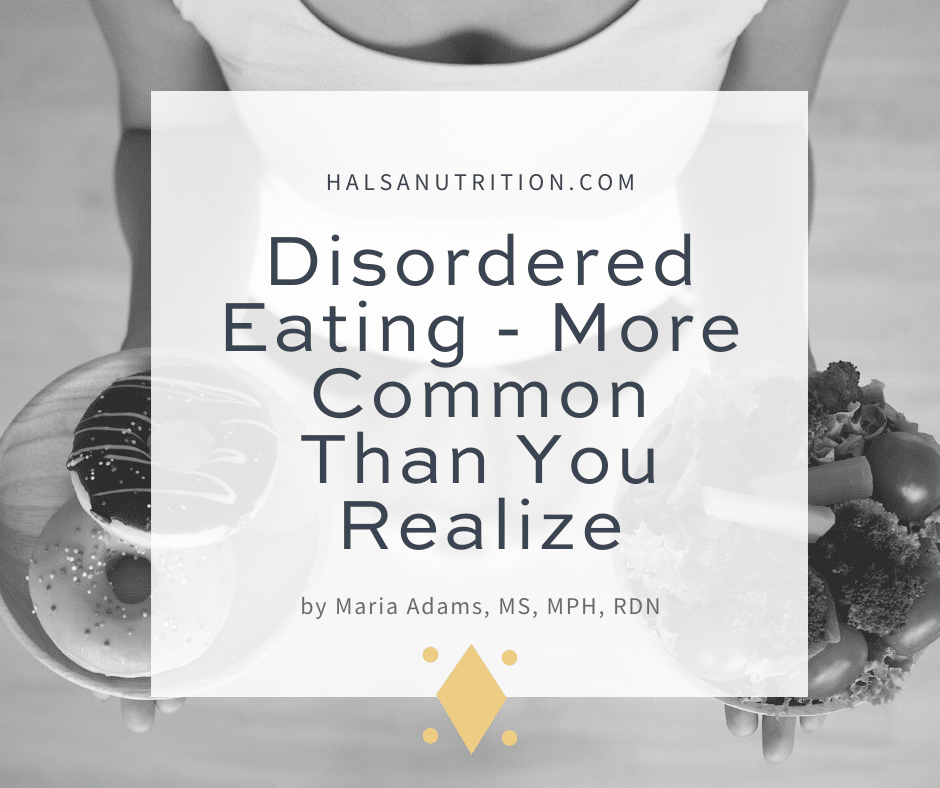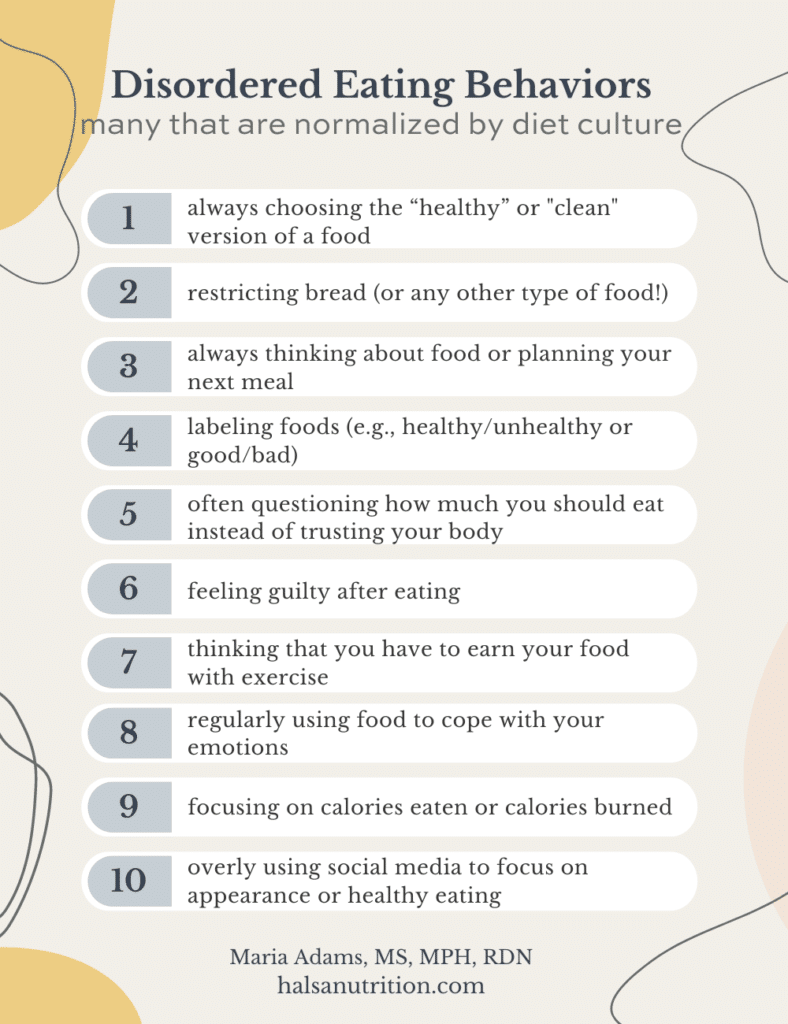
Disordered Eating: More Common than You Realize
Disordered eating is more common than you realize. In fact, it’s often portrayed as normal health-seeking behavior. Learn more about what it is and how it differs from an eating disorder.
What is disordered eating?
Disordered eating is having abnormal thoughts and behaviors around food and eating. These behaviors are often carried out in the pursuit of health or weight loss. They may focus on body image and exercise as well.
Disordered eating should be taken seriously as it can cause harm and could lead to a full-blown eating disorder. Moreover, these disordered thoughts and habits occupy a lot of time, energy, and mental space, leaving less room for what really matters in life.
Unfortunately, disordered habits around food have become normalized and even praised thanks to diet culture.
Common disordered eating behaviors
Here are some common disordered eating behaviors. Many of these are normalized in Western cultures.
Dieting behaviors
- Restricting food
- Skipping meals
- Going on cleanses
- Taking diet pills
- Using meal replacement shakes
Thus, dieting–which generally tells us to restrict certain foods, amounts of food, or meal times–is considered disordered. Many of these behaviors will lead to binge eating to compensate for the restriction.

Other disordered behaviors
The below list shows additional disordered eating and exercise behaviors. Diet culture has normalized many of these behaviors. Some, because they entail a rigid mindset (e.g., always eating “healthy”). And others because they are just simply a product of diet culture. Without diet culture, for example, we wouldn’t feel guilty after eating. Here are examples:
- Always choosing the “healthy” version of a food
- Never missing a day of exercise (especially if your body is hurting or needs rest!)
- Only eating “clean” or “whole foods”
- Restricting bread (or any other food!)
- Always thinking about food or planning your next meal
- Labeling foods (e.g., healthy/unhealthy or good/bad)
- Feeling guilty after eating
- Often questioning how much you should eat
- Feeling out of control around food
- Thinking that you have to earn your food with exercise
- Regularly using food to cope with your emotions
- Focusing on calories eaten or calories burned
- Preoccupation with body size or appearance
- Overly using social media to focus on appearance or “healthy” eating

Is it an eating disorder?
So when does abnormal eating become an eating disorder? Well, you can think of your relationship with food as falling on a spectrum. On one end of the spectrum, we have intuitive eating, and on the other eating disorders. Disordered eating falls in the middle, but can skew towards either direction.
Doctors diagnose eating disorders based on different criteria. However, there is a blurry line between disordered eating and eating disorders and it’s not always clear whether someone has disordered eating or an eating disorder. But one thing is clear: Eating disorders are life-threatening mental health illnesses that need prompt professional attention. In addition, it’s important to know that they don’t have a certain “look” and can affect anyone of any age, gender, body size, ethnicity, or income. (Please see the “Resources” section below for information on where to get help.)
When to seek help
If you or a loved one suffers from negative thoughts and habits around food, eating, or exercise you should seek help. It doesn’t matter the severity or whether you aren’t sure if it’s an eating disorder–the earlier you get help the better. After all, wouldn’t it be great to free yourself from all the time and energy these disordered thoughts take up? In addition, if you have a family it’s extra important to work on your relationship with food so that you can help foster the same for your kids.
Below are some resources to help you out–wherever you fall on the eating spectrum!
Resources
- National Alliance for Eating Disorders
- National Association of Anorexia Nervosa and Associated Disorders
- The Emily Program
- Intuitive Eating Counselor Directory (for help with disordered eating and ditching diet culture)
Leave a Reply